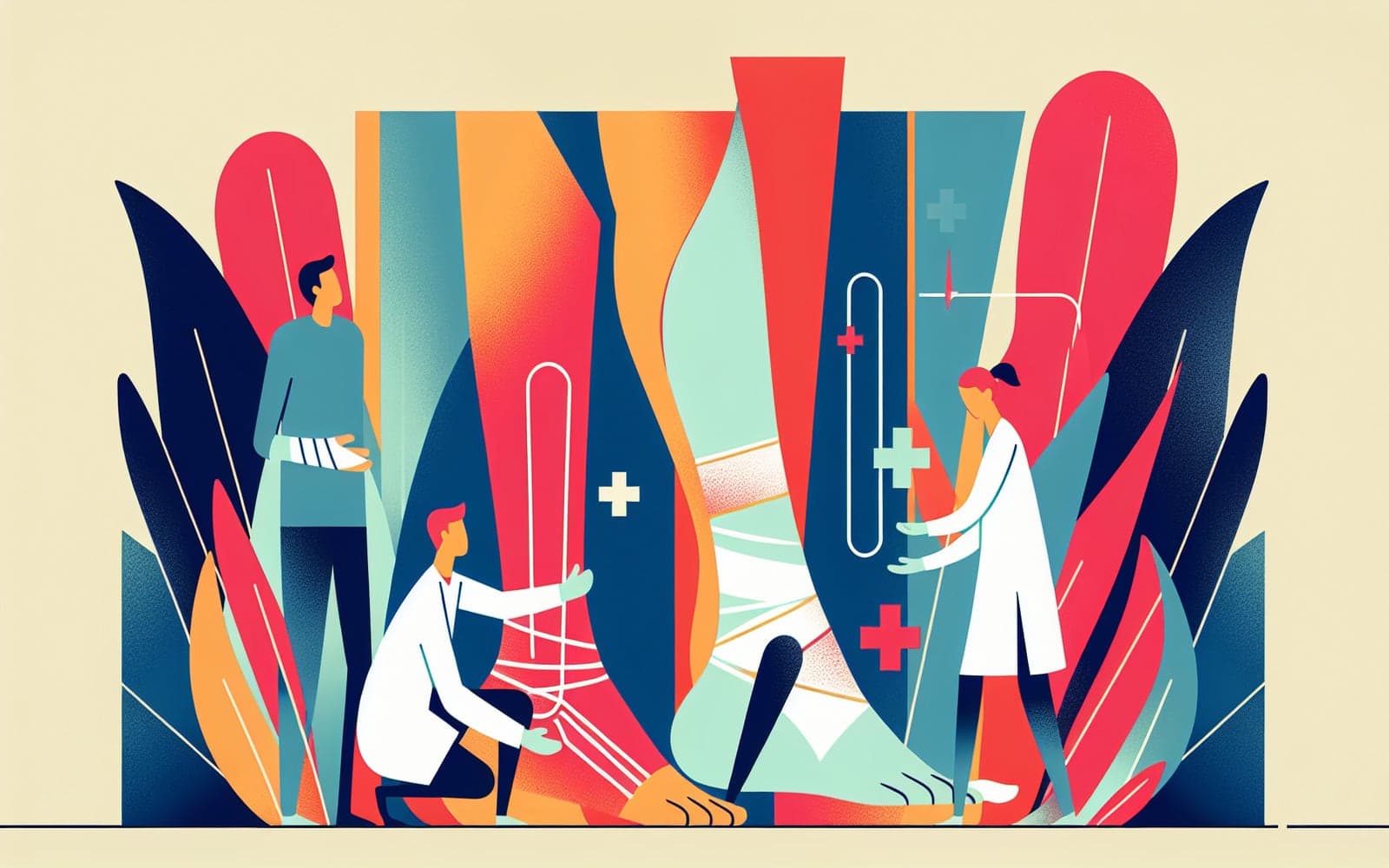Ankle Sprains: What You Need to Know About This Common Injury
Published: Sep 25, 2024
Ankle sprains are one of the most common injuries, affecting both athletes and non-athletes alike. Understanding this injury can help you prevent it and recover faster if it happens to you.
Contents
Types and Severity of Ankle Sprains
Ankle sprains are classified into three grades based on severity. Grade I sprains are mild with minimal ligament damage. Grade II sprains involve partial tearing of ligaments. Grade III sprains are the most severe, with complete ligament rupture. Most ankle sprains affect the lateral (outer) ligaments, while medial (inner) sprains are less common but can be more serious.
Immediate Treatment: The PRICE Method
The PRICE method is the gold standard for initial ankle sprain treatment. It stands for Protection, Rest, Ice, Compression, and Elevation. This approach helps limit pain and swelling while promoting healing. Apply ice for 15-20 minutes every 2-3 hours, use an elastic bandage for compression, and keep the ankle elevated above heart level when possible.

Recovery and Rehabilitation
Recovery time varies depending on the sprain's severity. Mild sprains may heal in a few days, while severe sprains can take several weeks or months. Rehabilitation exercises are crucial for proper healing and preventing future sprains. These typically include range of motion exercises, strength training, and balance exercises to improve proprioception (awareness of joint position).
Frequently Asked Questions
Recovery time varies from a few days for mild sprains to several weeks for severe ones.
It depends on severity - mild sprains may allow walking, severe sprains require rest.
Most ankle sprains don't require surgery, but severe cases might.
Proper rehabilitation can restore and even improve ankle strength and stability.
Key Takeaways
With proper care and rehabilitation, most people fully recover from ankle sprains and can return to their normal activities.
Wondering if your ankle pain might be a sprain? Chat with Doctronic, your AI doctor, for personalized advice and next steps.Related Articles
References
Gribble PA, et al. 2016 consensus statement of the International Ankle Consortium: prevalence, impact and long-term consequences of lateral ankle sprains. Br J Sports Med 2016; 50:1493.
van den Bekerom MP, et al. What Is the Evidence for Rest, Ice, Compression, and Elevation Therapy in the Treatment of Ankle Sprains in Adults? J Athl Train 2012; 47(4):435-443.
Always discuss health information with your healthcare provider.

